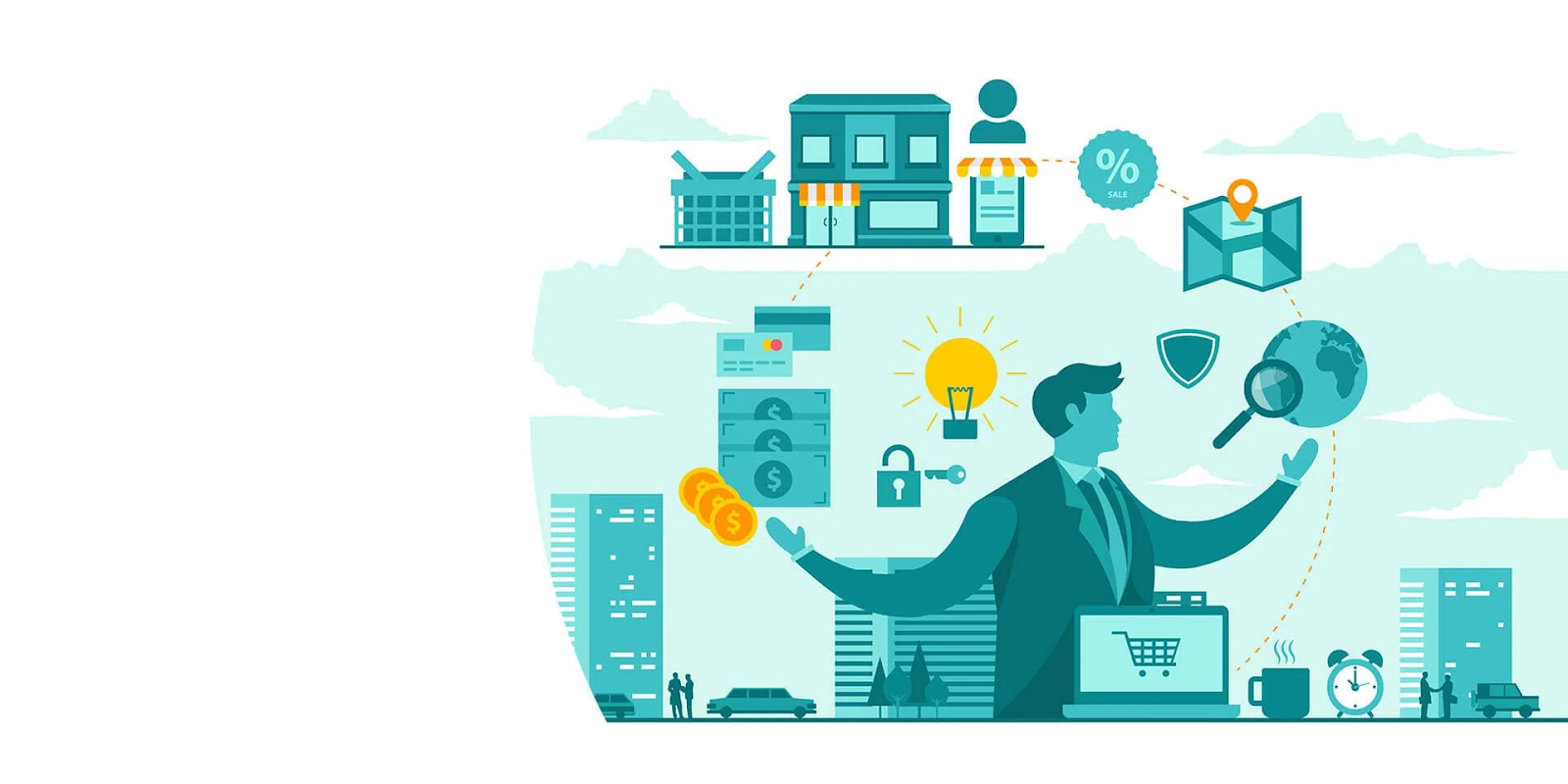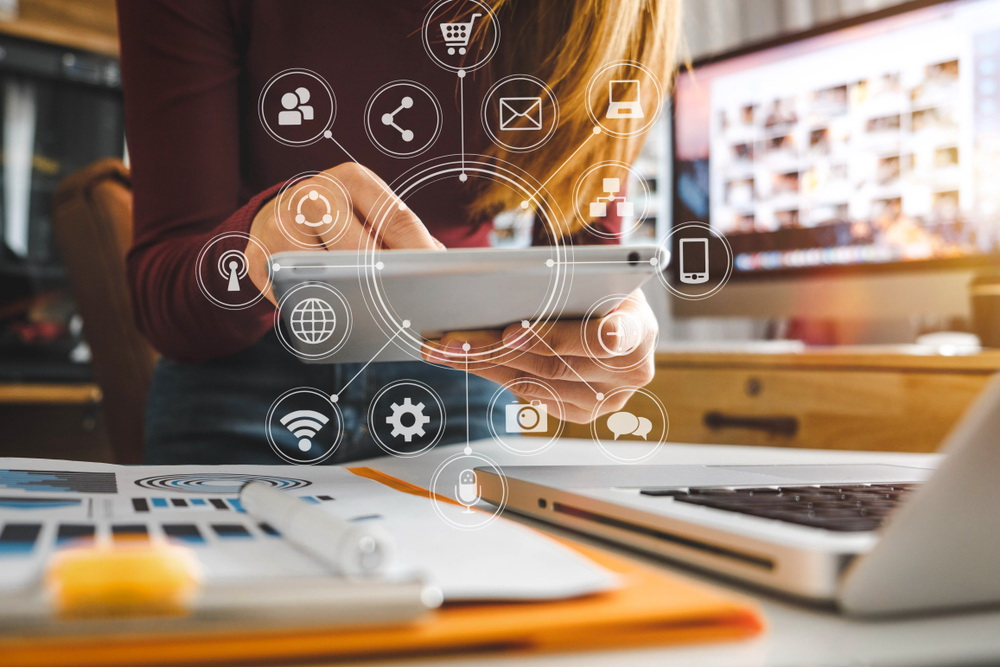
Image source: Travel Daily Media.
7 latest technology trends in 2022 for the hotel industry
It is indisputable that the burgeoning growth of technology has helped hotels immensely in managing tasks and delivering unique experiences for hotel guests. From contactless check-in to cloud-based systems, technological gadgets proved to be a redoubtable player that changed the game. Thus, hotels have to soon adapt to this scenario of advancement to avoid falling back behind.
So what are the current developing technological phenomena that hotels should keep an eye on? In the following article, we are going to delve into the existing 7 hotel technological trends in 2022, which includes:
AI Robots
Voice control technology
Contactless technology
AI recognition
IoT smart lock
Privacy protection programs/ hotel cybersecurity
Customization/Personalization
Now let’s dive in!
1. Robots
Since the dawn of technology, robots have been introduced as prominent players in the technology field. indicates robots as any device or system engineered to deliver certain tasks with unparalleled levels of efficiency and precision.
Interestingly, it is a common misperception where people believe robots only operate in related technical industries that require advanced gadgets such as manufacturing, agriculture, or mechanics. In fact, robots are slowly dominating almost every nook and cranny of the job sector.
For a clear illustration, robots can appear in journalism by producing a well-written article on The Guardian using just 0.12% of its cognitive ability; robots could help refine grammatical mistakes (say, Grammarly) or paraphrase a whole paragraph or even an article (Quillbot).
In the hotel industry, in particular, the penetration of robots is not escapable: Robots now can replace receptionists and some hotel staff to guide guests around the hotel hallway, and they could provide a unique guest experience.
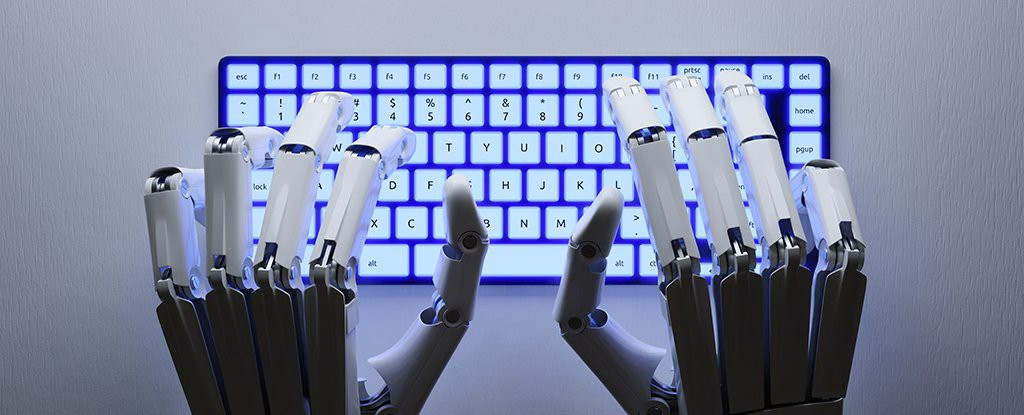
Image source: Shutterstock
In different cultures, hotels perceive robots differently. According to Choi and Wan (2021), Chinese users believe robots are prone to autonomy and flexibility in the decision-making process, while Americans find robots as obedient assistants.
The use of robots can be maximized in times of COVID-19 in order to minimize human direct contact. The research by Choi and Wan (2021) also points out Chinese consumers prefer hotels consisting of robot-staff to human staff in comparison to Americans.
The high level of intelligence enables robots to carry out different tasks, even socially and emotionally interactive services. This sparked a debate whether robots could completely supplant hotel staff, and how the future would be for the hotel industry when adopting robots.
The answer is: It depends.
It is great when hotels start questioning themselves about robot utility, whether the hotel’s budget and willingness to cover the cost of robot implementation; or whether guests will support the use of robots in hotels.
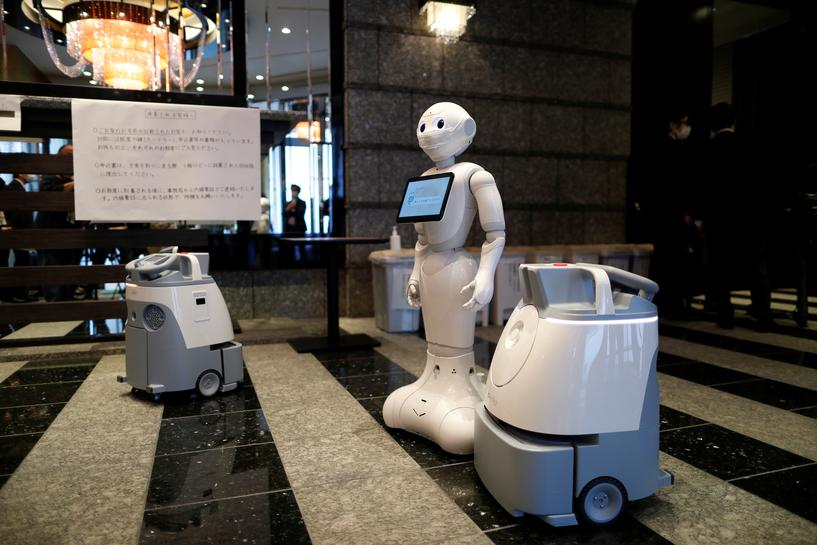
Pepper (the robot) is meeting COVID patients in a hotel in Japan. Image source: Reuters.
It is undeniable that robots could help in manual work such as cleaning, room service, or food and beverages delivery to the guests’ room. Therefore, we might conclude that robots can alleviate the burden by handling the manual work and boost efficiency, while staff could focus on improving guest-relationship and delivering other services.
2. Voice control technology
People can access everything at their fingertips by clicking a few buttons on their smartphones. Now, it’s time they got access and gained control over gadgets through their voice. Oracle’s Hotel 2025 report reveals that 78% of hotel operators believe in-room technology such as voice-activated controls for lights, air conditioning, and room devices will be mainstream in the next 3 years. We are mostly accustomed to Google Alexa, Amazon’s Echo, or Apple’s Siri, or some of our houses might be equipped with voice-activated lighting systems.
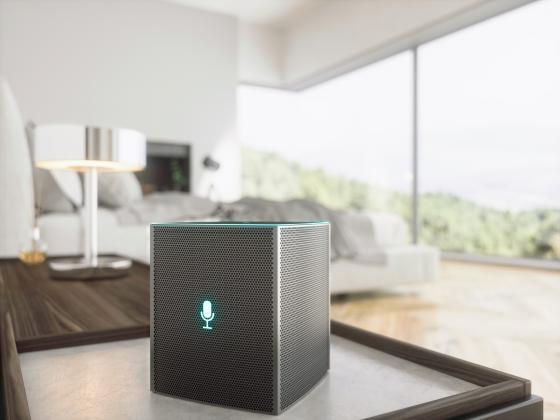
Benefits of voice technology in hotels. Image source: Hospitality Technology.
Some have pointed out voice control technology still has inevitable setbacks, including deciphering human dialects and limited conversational capabilities (Forbes, 2020); technology is always changing and advancing for the better.
However, Hospitality Tech reveals that this voice technology development enables guests to interact with in-room recognition with native language and natural way of speaking. Furthermore, since AI is equipped with acoustic-only recognition, this function will elicit better understanding from the speech separately without the text transcription. Therefore, this would lead to faster responses from the devices and blur the language barriers.
Another issue revolving around smart speaking technology is data privacy concerns and accuracy. Since hotel guests will have to use their voice to interact with the devices, some guests are apprehensive of having their data collected discreetly. The voice technology might sneakily eavesdrop on the conversations and share their data with the hotel merchandises.
Sometimes, hotel guests are concerned about the inaccurate response of the voice-controlled technology. Imagine how frustrating it is to wake up in the middle of the night or accidentally activate an unwanted function from the device because it could not understand you!
So, it is undeniable that voice technology could be cutting-edge; but we should also consider the guests and the hotel’s willingness to embrace this technology.
3. Contactless technology
Even though contactless technology has been popular for a while, not every hotel has utilized and capitalized on the benefits it offers. Contactless technology has given guests a more personalized experience and reinvented the hospitality industry.
For example, contactless check-in has risen in popularity since it could save plenty of time for guests and hotel staff. Guests could check-in by themselves with a mobile device (either a PC or a mobile phone), scan their ID, upload their documents, and they can even chat with the hotel through the auto-message function.
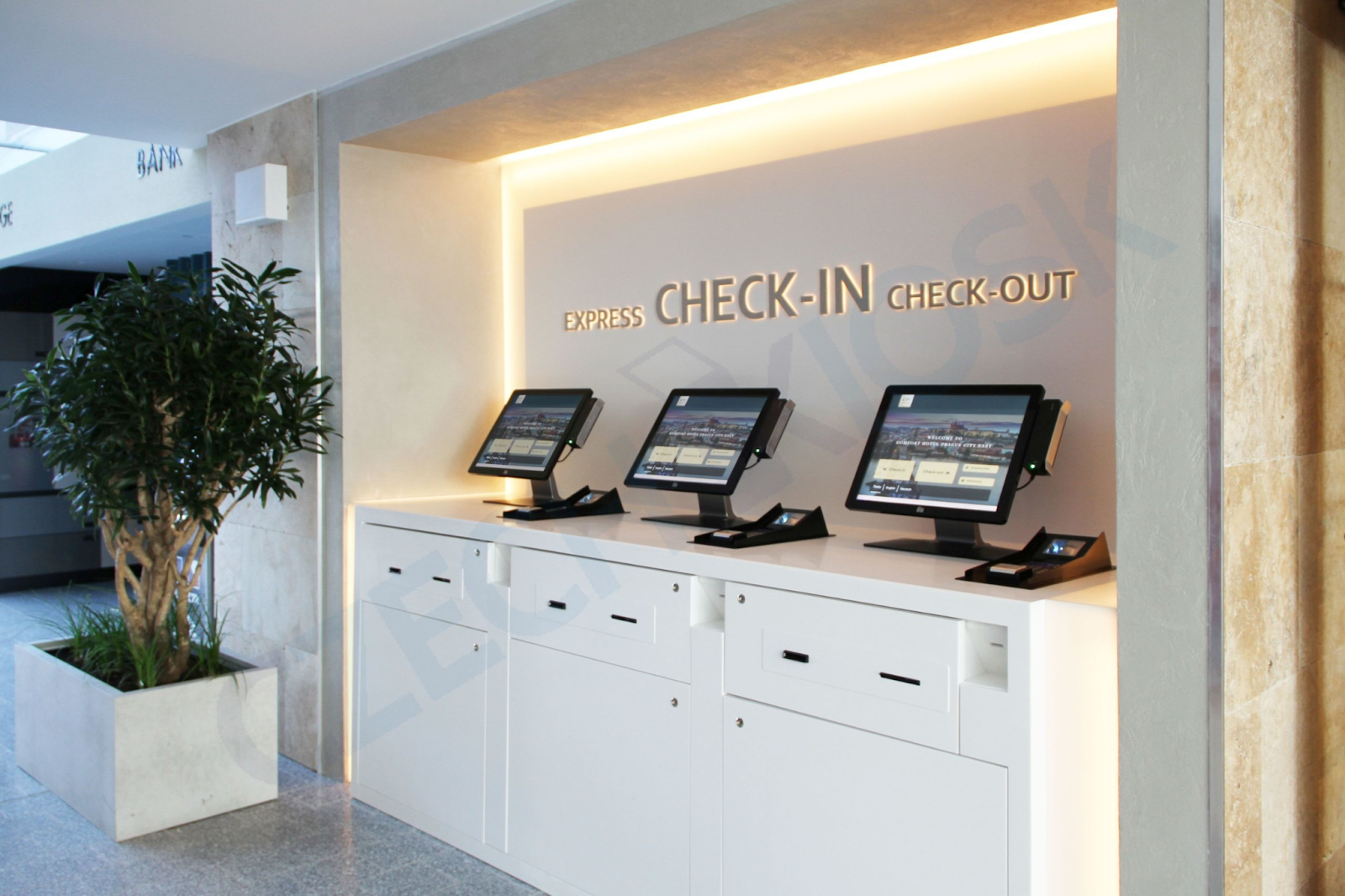
Contactless check-in. Image source: Czech Kiosk.
Touchless tech also gives way for cashless payments and payments – a much faster method instead of doing this in person. The boom of the pandemic also requires contactless check-in to minimize COVID-19 exposure, which is a boon for the adoption of this kind of technology.
We believe that contactless technology, even after the post-COVID scenario, would be here to stay regarding the personalized experiences that guests can receive and the streamline of hotel operations.
4. AI recognition
AI recognition is one of the most trending technologies that hotels could adopt. However, some AI-integrated devices could be expensive, but hotels could adapt to the hotel size and the purpose.
AI recognition technology can help hotels in various ways. While investigating the reliability of AI technology, Hospitality Technology indicates that this kind of technology could detect people not wearing a mask in the hotel.
The cameras with the AI will capture the guests’ presence and analyze the guest, whether they have properly worn the face mask. If they wear masks incorrectly, the guests will be notified with the kiosk performing a health check.
Face ID may be utilized to provide automated entry to certain hotel facilities, choose the floor when using an elevator, and even provide secure keyless room access. One of the successful examples of AI adoption we could highlight is Vinpearl Nha Trang, Vietnam.
With 1,362 hotel rooms, 735 villas, 84 sea-view villas, more than 100 entertainment areas, a golf course, a series of diverse theme parks, and cuisines from five continents, the Nha Trang Vinpearl has been a successful hotel brand since 2003.
VinPearl adopted the kiosks to scan guests’ faces to access entertainment areas and buffet restaurants. After the check-in process, the hotel employee will guide guests to one of the kiosks and authenticate their faces with AI facial recognition. Visitors may check-in for the complete family simultaneously, going through automatic gates and taking advantage of personal privileges with the greatest level of privacy.
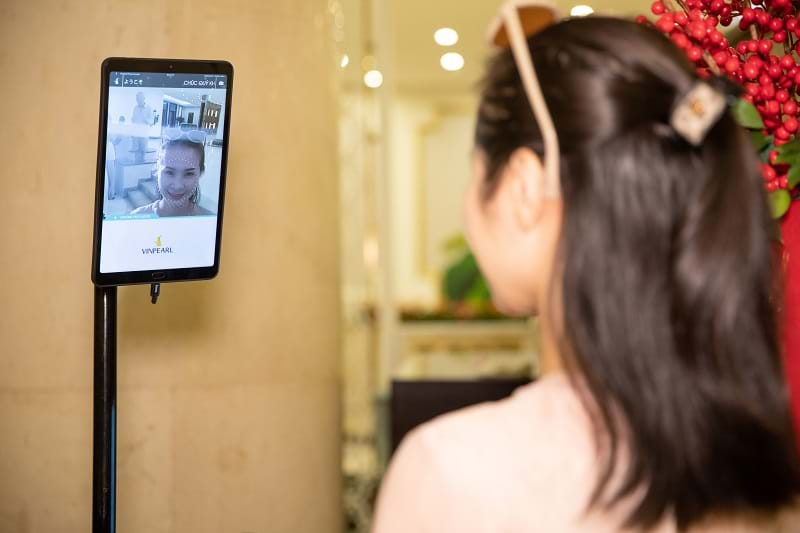
Vinpearl check in kiosks. Image source: VinPearl.
5. Data protection programs/ Hotel cybersecurity
With the ongoing issues related to cybersecurity in the digital era, hotels should find ways to take guest data into account. As the customers cannot fully administer their data since they are interrelated with several services, the businesses are obliged to avoid taking advantage.
According to Statista, 40% of Internet users were concerned about selling sensitive personal data to third parties without consent. In addition, some hotels sell their customer profile, which further provokes privacy concerns.
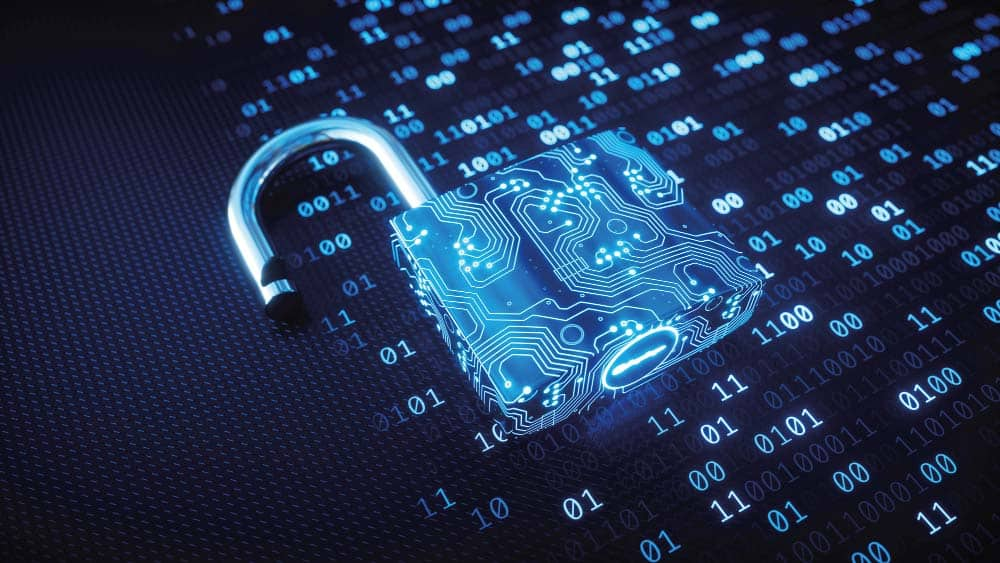
Hotel cybersecurity is a matter that hotels should notice more often. Image source: Analytics Insight.
Regarding hotel data breach prevention, hotels also need to focus on data protection programs. This would include training employees to protect guest data digitally (securing with strong passwords and changing passwords regularly) and physically (keeping guest information confidential from strangers). Furthermore, hackers and attackers cannot only exploit the hotel’s computer system by sending phishing emails, viruses, and other harmful programs, but they may also attack the hotel’s Wi-Fi network.
Guests may connect to the same network throughout the hotel, including the lobby, convention center, dining hall, and other areas. Therefore, hackers can monitor the visitors’ traffic on the Wi-Fi and use it to steal the guests’ private information if the hotel Wi-Fi is not secure, which is the situation for most current hotels.
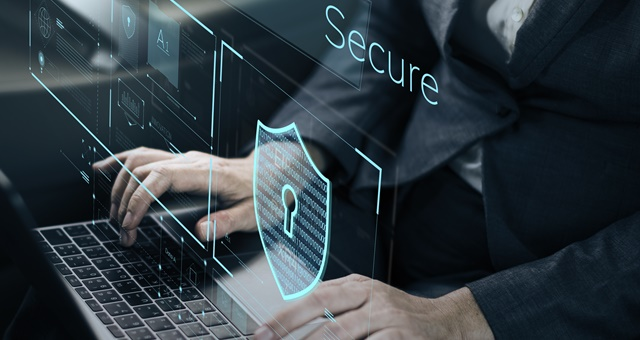
Installing applications to protect hotel and guest information. Image source: Hotel Management.
According to the research by Munir (2020), web application firewalls are one of the technologies that hotels may use to avoid security breach threats (WAF). A WAF differs from a traditional firewall by how it could filter the content of certain web applications, hence facilitating the prevention of different types of attacks from internet security flaws and security misconfigurations.
Furthermore, WAF solutions are also effective for identifying and monitoring data theft because they may identify and ban credit card databases if attackers target them. Another way to secure hotel data is by employing digital certificates (Munir, 2020). In addition, hotels could employ trustworthy companies and hotel technology developers to protect their information, both for the guests and the hotels.
6. IOT smart lock
IoT is the abbreviation of the Internet of Things. IoT-connected devices are leveraged to enhance guest experience and a streamlined hotel management system for staff and managers in a smart hotel. For example, this IoT smart lock technology has a special function called “loss and found control” so guests don’t have to worry about picking up keys.
Also, the receptionists won’t have to issue new keys when guests lose their room keys. Guests will also be provided with a key code to activate the room key upon their arrival, thus ensuring the confidentiality of the guests.
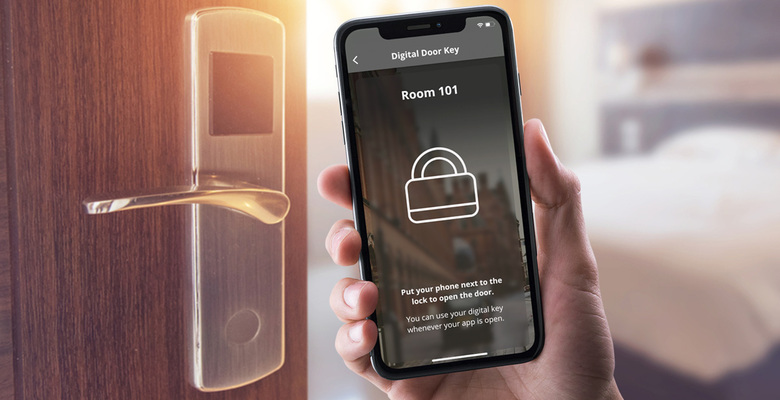
IoT Smart lock. Image source: Travel Daily News.
Because of the ever-increasing pace at which technologies are created and modified, the IoT will offer numerous perks for the hotel industry (Jones, 2008). According to Mercan et al. (2020), the increased integration of this technology is remarkable since it shows in-depth customer insights and experiences, property management, security, and decision-making through data analytics – all of which lead to higher revenue and expenditure reduction, giving IT a competitive advantage.
A clear example of IoT adoption is how Marriott and Samsung collaborated on IoT hotel rooms to elevate guest in-room experiences. The guests can communicate with virtual assistants to request services and manage the room.
Smart mirrors connect to a cloud server and provide in-room exercises. IoT devices may also help hotels save money by minimizing operating expenses and conserving energy. For example, using an energy management system efficiently, Crown Plaza Times Square has cut energy use by 24%. (Curcio, 2011).
7. Personalization
Last but not least, guest personalization has been in vogue in the hospitality industry. Guests in the modern-day could customize their experiences, including setting up their tour, self-check-in, food preferences, and facilities booking. However, to fully grasp the potential of hotel personalization, hotels need to understand what guests need and create guest profiles.
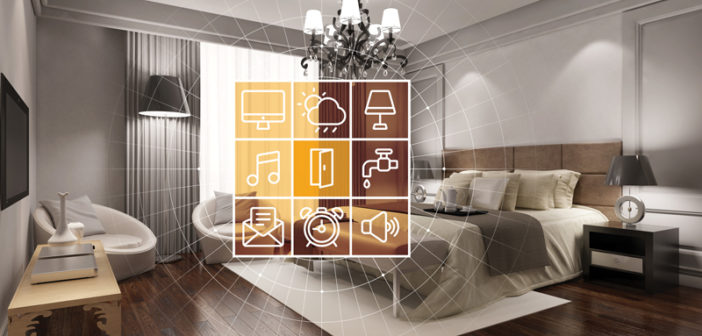
Hotel customization could enhance guest experiences. Image source: Hotel Business.
Besides, hotels should bear in mind that they should provide options for guests since this is the fundamental step to allow guests to start building up their experiences. Zang (2018) reveals 5 indicators to improve the hotels’ personalized experiences, including:
Specify the experience theme: Hotels could categorize themselves into themes and aesthetics, such as tropical forest, bright/dark-themed, or vintage themes.
Meet guests participation requirements: some activities could include cultural local event participation, environment campaign, etc.
Meet guests’ spiritual needs: Taking care of guests’ psychological feelings.
Make full use of entertainment facilities: Facilities such as bars, restaurants, billiards, etc., should be catered for guests.
Utilize celebrity effect: Celebrity endorsement could be a successful strategy for hotels to increase the outreach.
Summary
In this article, we have listed 7 technological trends for the hotel industry in 2022. The technology will become more advanced as we move forward, with contactless technology, cloud-based systems, personalized experiences, cybersecurity, and interactive AI technology. These technologies possess some opportunities and some hidden risks that hotels should consider. But all in all, hotels should seize the chance to minimize the risk and maximize the potential, given the long-term viability and profits hotels can reap from these technologies.
Let AirHost help your business grow.
Our experts are here to support your requests anytime.


